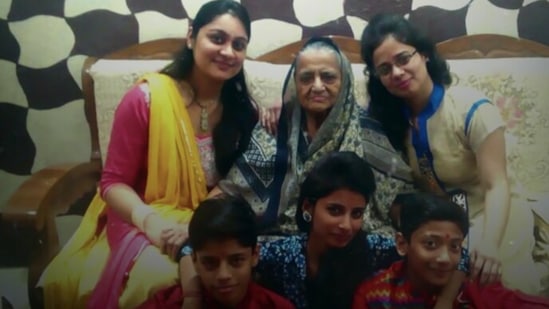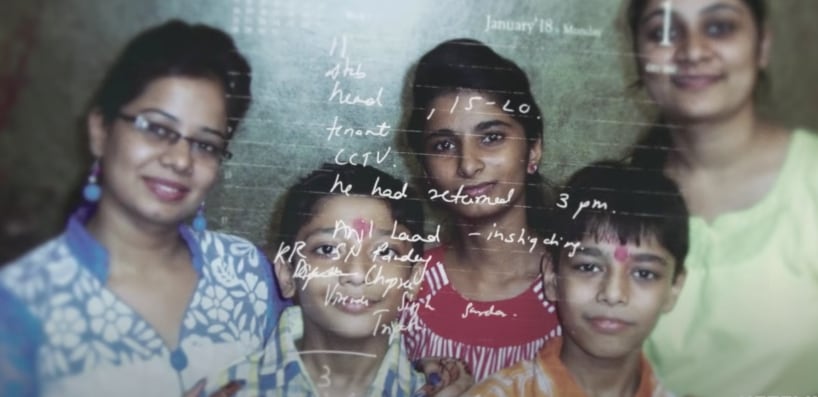House of Secrets The Burari Deaths review: Netflix show goes beyond gory details, re-examines case that gripped nation
House of Secrets The Burari Deaths review: Netflix India's new true crime documentary goes beyond the gory details and asks the questions that really matter.
House of Secrets: The Burari Deaths
Directors - Leena Yadav, Anubhav Chopra

Avoiding the exploitative tone that most true crime documentaries find irresistible, Netflix’s House of Secrets: The Burari Deaths goes beyond the gory details and addresses the sociological and psychological aspects of a case that made national headlines in 2018. That title is as salacious as it is willing to get.
Eleven members of the same family were found hanging in the living room of their north Delhi house one summer morning; three generations, dead in what appeared to be an occult ritual gone wrong. Their bodies were discovered by neighbours who noticed a disturbance in their daily routine. An hour later, everyone from chief minister Arvind Kejriwal to Rinkiya ke Papa had arrived at the scene of the crime; thousands of curious locals had surrounded the area, climbing on rooftops to get a better look at what was being described by screeching news anchors as one of the most shocking crimes in years.
Watch the House of Secrets: The Burari Deaths trailer here:
And it really was. Not since the Nithari killings or the Arushi double murder case had a crime story made national news so rapidly. Call it a coincidence, or purely my ignorance of other major stories of this kind, but each of these three cases happened in and around New Delhi.
This is quite a sobering realisation to have. While I’ve never been to Burari, or even that part of town, I’ve lived in this city my entire life. It’s one thing to watch fictional shows such as Paatal Lok and Delhi Crime and admire the attention to detail with which they were put together, but it’s rather distressing to relive a case that truly makes you question the very idea of decency.
The access that the filmmakers have been granted in House of Secrets is admirably expansive. A lesser series would’ve been quite content with rounding up the next of kin, a couple of journalists, and whichever cop was willing to talk and called it a day. But House of Secrets throws a handful of psychologists into the mix, adding a key perspective that is usually missing in programmes such as this.
The Burari deaths were presented ‘only as the bizarre’ by the media, a clinical hypnotherapist says in the show, but despite doing exactly that for two whole episodes, House of Secrets reveals itself to be something more worthwhile, and ultimately more rewarding, in its final episode. Having gotten the scandalous details of the story out of the way, co-directors Leena Yadav and Anubhav Chopra focus on the human beings — the neighbours, the friends, the investigators, all of whom have been left with emotional scars that will perhaps never fully heal.
Jovial as one policeman might seem at recalling details of what is clearly the biggest case of his life, even he can’t help but restrain his commentary when asked about the devastation that it has left behind. The policeman freely admits that he is asked about the Burari deaths even today, and in a way, his participation in this documentary proves his point. While debating with his right-hand man about whether or not the deaths can be classified as suicide or murder, his partner excitedly describes it as an ‘incidental death’, before quickly correcting himself: “Accidental death, I mean.”
There’s an aura of opportunism about these two cops, and it wouldn’t at all be surprising if they continue telling stories about the Burari deaths well into retirement. They weren’t exactly involved in the investigation, but just happened to be posted at the right ‘thaana’ at the right time. In a keenly-observed moment that the filmmakers cleverly choose to retain in the show, the cop cuts a call by telling the person on the other end that he is busy shooting a documentary. It reveals so much about him.

But others are more respectful. “Is there a God?” a family friend asks out loud at the end of episode three. You get the sense that it’s a question he has grappled with regularly after the deaths, as he inches towards a clarity unlike any that he has known before. Of course there isn’t, he says, again as if he is thinking out loud. And you can’t help but admire the directors’ decision to end the show on such a poignant, but potentially provocative note.
House of Secrets doesn’t attempt to investigate the crime — it is, after all, a closed case — but tries to expand on the discourse surrounding it, which was invariably limited to chatter about the family having experienced a ‘shared psychosis’. That’s a neat way to summarise what happened, one psychologist argues, but did anyone take a moment to address what must have pushed the suspected mastermind — a middle-aged man named Lalit — to convince three generations of his family to follow him into oblivion?
As piles of painstakingly compiled diaries recovered from the crime scene suggest, Lalit claimed that he was possessed by the spirit of his late father, and coerced his family into not just believing him, but also keeping their domestic matters a secret. He was, in a way, the leader of his own mini-cult, influencing his followers with minor ‘miracles’ and leading them to salvation and prosperity.
I found it particularly telling that even in one of his trances, Lalit ensured that his wife remains subjugated in both a literal and metaphorical sense. The show lingers on moments such as this as it subtly highlights the role patriarchy played in the Burari deaths. I’m no expert, but perhaps being conditioned to believe that you have zero agency all your life makes you more vulnerable to being corrupted by others?
Also read: Delhi Crime review: Gut-wrenching, shocking; the best Indian Netflix show since Sacred Games
Ironically for a family that everyone in the show describes as being tight-knit, the Burari deaths exposed how isolated people in big cities can be. Many might wonder why none of the 11 victims ever said anything; why they didn’t raise the alarm. But have you ever stopped to ask if anyone would’ve listened?
Follow @htshowbiz for more
The author tweets @RohanNaahar
Get more updates from Bollywood, Taylor Swift, Hollywood, Music and Web Series along with Latest Entertainment News at Hindustan Times.
Get more updates from Bollywood, Taylor Swift, Hollywood, Music and Web Series along with Latest Entertainment News at Hindustan Times.






